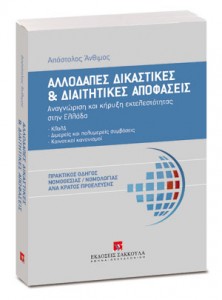Van Den Eeckhout on Choice and Regulatory Competition and on Business and Human Rights
The working paper “Choice and regulatory competition. Rules on choice of law and forum”, written by Veerle Van Den Eeckhout (https://www.uantwerpen.be/nl/personeel/veerle-vandeneeckhout/ ) is now available on ssrn, here. The paper is the short written version of her contribution to the Conference “Norm-Setting, Enforcement and Choice”, held in Maastricht (the Netherlands) on 18 October 2013. The Conference report is available here.
The paper analyzes PIL from the perspective of “Choice and regulatory competition”. The final version of the paper will be published in the Congress book.
The Power Point of another Presentation of Veerle Van Den Eeckhout has also been made publicly available: The Power Point of her contribution to the Conference at Lausanne on 10 October 2014 is available on slideshare, see http://www.slideshare.net/vvde/lausanne10oktober201419septdefinitief . This Power Point was presented during the Conference “The Implementation of the UN Principles on Business and Human Rights in Private International Law” at Lausanne, see for the programme of the Conference http://www.isdc.ch/d2wfiles/document/4713/4018/0/Human%20Rights%20in%20PIL-%2010-10-2014.pdf The presentation of Veerle Van Den Eeckhout was entitled “The Private International Law Dimension of the Principles. Introduction.”
